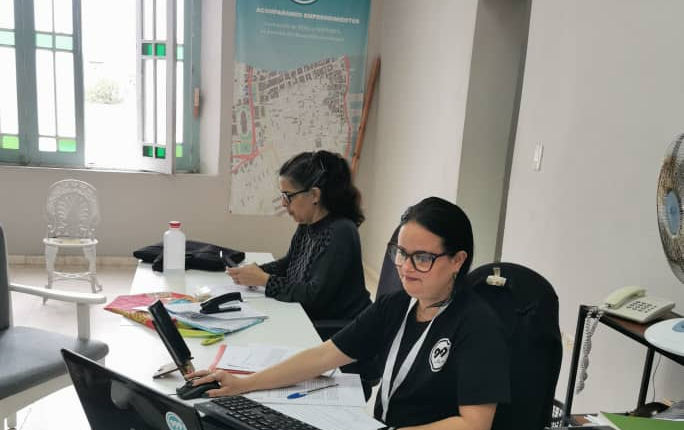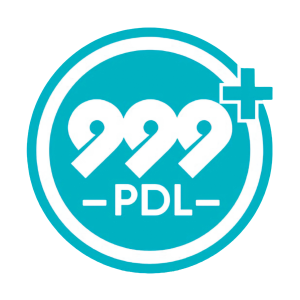
LDP 999+: Preaching and practicing corporate social responsibility
On February 26, the University of Havana’s Entrepreneurship and Innovation Network, along with the Cuban Network of Social and Solidarity Economy and Corporate Social Responsibility (ESORSE) from the Center for Psychological and Sociological Studies (CIPS), collaborated to convene a Dialogue on Social Responsibility: Potentials and Challenges.
The event occurred at the Student Union House of the University of Havana and was moderated by Dr. Jusmary Gómez Arencibia, co-coordinator of the ESORSE Network and deputy director of CIPS.
The panelists at the meeting included executives from two private companies: ISLA SRL and Centro Idioma Babel SURL; a state-owned company, Quinta de los Molinos, which belongs to the Office of the Historian of Havana; and representatives from the local development project PDL 999+.
We discussed ISLA SRL in a previous article titled “Presentes por Cojimar” (https://progresoweekly.us/presentes-por-cojimar/). Today, we will focus on the Local Development Plan 999+ through an interview with Mayte Rodríguez, its general coordinator.
First of all, what is a local development project (LDP)?
It consists of actions undertaken by individuals, community groups, cooperatives, small businesses, and institutions like universities, aimed at fostering the development of a territory. Their design and execution should prioritize strengthening participating groups and stakeholders, maximizing the use of local resources, and facilitating grassroots involvement in problem-solving.
LDPs can take various forms: economic-productive, which generate marketable goods and services; sociocultural, aimed at enhancing social services for the population; environmental, focused on protecting and sustainably using natural resources while improving environmental conditions; institutional, which help to strengthen the capacities of institutions; and research, development, and innovation.
They can depend on their own financial resources, those of local actors, the territorial contribution (known as the 1%), and various provincial, national, and international cooperation funds.
Municipal governments are expected to evaluate and approve LDP proposals within the framework of their Municipal Development Strategy, to which they must contribute. To this end, they should have the training and support of provincial universities and municipal university centers, as well as research centers and NGOs, depending on the strengths of each territory. Unfortunately, many municipalities still lack the necessary capacity or support and rely on the provincial or national government.
The municipality of Habana Vieja [Old Havana] possesses significant experience, capacity, and knowledge, largely thanks to the contributions of the Office of the Historian of the City of Havana (OHCH), which is located there. Its mayor, Alexis Acosta Silva, has extensive knowledge of projects and, with the support of the OHCH, maximizes the opportunities provided by the PDLs.
 Why 999+?
Why 999+?
In accounting, the account that summarizes a company’s bottom line (profit or loss) is usually account 999. The PDL 999+ was created by a bookkeeper and a computer programmer who teamed up to present the proposal to the municipality of Old Havana. They were self-employed workers (TCP) who, as private individuals, can only perform bookkeeping activities. This initiative allows them to offer a much broader range of accounting and business consulting services, responding to the demands of their clients, particularly those who are already—or want to become—micro, small, and medium-sized enterprises (MSMEs).
How did they start?
MSMEs weren’t even mentioned when we started working, and we observed that the need for support was increasing. It wasn’t just about accounting; comprehensive business consulting was necessary.
We started with the need to provide consulting not only in accounting but also in legal, human capital, recruitment, communications, image, business organization, and tax matters. Additionally, we aimed to promote corporate social contributions. The project seeks to enhance the positive results of its clients by offering business services while simultaneously fostering community development, hence its name.
We have a certified ERP (Enterprise Resource Planning) system, developed by us (version 13), that meets the demands and needs of Cuba, adapts to the national market, and complies with all resolutions.
We viewed ourselves as the “family doctor” for these economic actors; however, we lacked the necessary legal expertise because self-employment in bookkeeping did not offer that opportunity. The non-agricultural cooperative (CNA) to which we belonged, Scenius, faced the same limitations regarding permitted activities in the private sector. Subsequently, discussions began about the local development projects authorized by Decree-Law 33 of 2021 to be undertaken by individuals, contractors, and MSMEs.
We began preparing our project and presented it to the government of Old Havana. We received support from the province and Mayor Alexis, as well as from Maidolys Iglesias, Director of Science and Innovation at the OHCH and founder of the ESORSE Network. The municipality donated all the furniture you see here.
Who are your clients?
Our clients consist of various economic actors and development projects, including MSMEs, cooperatives, and self-employed workers, as well as small and medium-sized enterprises (SMEs). They are individuals who come with their dreams, seeking our assistance to turn them into reality.
They come and say, “I want to start a business, or I already have one.” Sometimes, in the first interview, we realize they could very well be classified as a small and medium-sized enterprise (SME), or the opposite may be true. Occasionally, they express a desire to be an SME but do not meet the requirements, or there may be no necessity for that, allowing them to operate as a cooperative instead. In such cases, we advocate for the cooperative as a more social alternative.
Unfortunately, when the CNAs began to operate, the concept was unclear. It was a business with one or more owners, while the others were subordinates. That’s a false cooperative, and those spun off from state-owned companies didn’t grow from within. One day, they arrived at the center and were informed, “Starting today, you’re a cooperative.” The workers weren’t even prepared; in fact, when new economic actors were authorized in 2021, 98% were established as MSMEs and only 2% as CNAs, with several existing CNAs even transitioning to MSMEs.
People come to us seeking work, and we connect them with various jobs and businesses. If someone approaches me and says, “Look, I want to do something because my son is autistic, and I’ve realized I can work with autistic children, helping those mothers who are unemployed,” we assist them in setting up a business or finding a position in an existing company. Thus, we connect economic actors, and we feel good about it because it can truly help others.
Sometimes someone approaches me and says, “I want to be a manicurist,” and I suggest, “Aren’t you also interested in working on the hands of elderly women in the community?” Even though she originally comes to be a manicurist, we ultimately end up creating a PDL for her. She’s happy with it, and so are we.
PROYECTO DE DESARROLLO LOCAL 999+. Prédica y práctica de la responsabilidad social empresarial
How is the management and payment for services handled?
We don’t have fixed prices; they depend on the client. We haven’t charged some clients, while we have charged others because we need to remain solvent and financially viable. Some clients tell me, “Look, I have this idea,” and we know it’s going to be fruitful and align perfectly with the community’s development strategy. We respond, “Let’s pursue this project, and then, when you’ve capitalized, we’ll give you the option to pay.”
How is corporate social responsibility expressed?
We’ve always been mindful of helping the community and supporting these economic actors. With the training we provide, they can achieve their goals, follow their strategies, and, in turn, contribute back to the community. It’s like a chain: we assist these individuals, support them in making their businesses profitable, and in turn, they can aid in other projects.
We keep this in mind both externally and internally. It’s not just for the outside world; we also practice it with our employees. Today, we have 48 employees, and we’re always looking for opportunities for them to earn more. That’s a fundamental objective for us. We’re not primarily focused on profits but rather on ensuring our workers receive a good salary, their uniform, their morning coffee, and can afford transportation to the office for those who live far away. At the end of the year, we offer modules; this year, they centered around meat. Don’t think this assistance doesn’t come at a cost, but we’re continually striving to improve working conditions.
We have developed projects for entrepreneurial women. We have applied for international collaboration for five engaging projects that involve children, chess, and carpentry. One of them is a local health initiative led by Clandestinas, which promotes soccer for children.
Another collaboration involves professors from the Faculty of Mathematics at the University of Havana, who have established a cooperative for mathematical applications. Recently, we conducted a workshop with them on utilizing data science for entrepreneurs and how to design their strategies based on their data.
Does 999+ only operate in Old Havana?
No, we have another office in Plaza Mayor, so clients don’t have to come here. Much of our work is online, allowing us a national reach. We try to be here as little as possible and have the same employee perform multiple tasks because it helps with income.
After speaking with Mayte Rodríguez, we left the 999+ office in the Sarrat Building, which hosts various startups. We passed through a fair of entrepreneurs selling their products along Teniente Rey Street and confirmed, once more, that Old Havana has, more than a century after its heyday, become the heart of the city.

